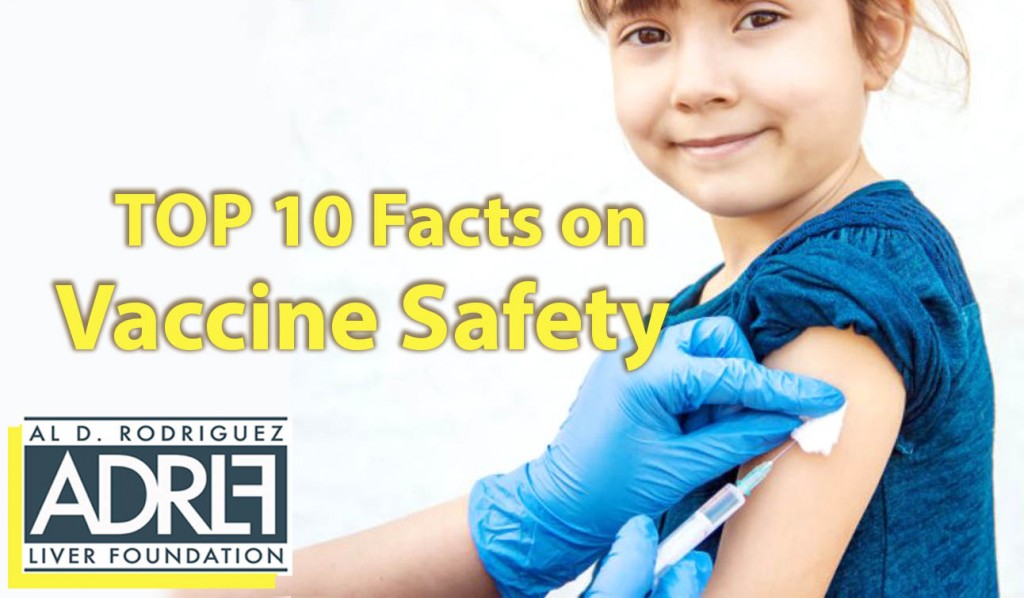
YES, injections may pinch for two seconds. NO, no one loves to get them. However, the few moments of discomfort pale in comparison to the damage that the perilous diseases they prevent can wreak havoc on your body; and in some cases, lead to death. Vaccines have been protecting children and adults from diseases for centuries, from polio to tuberculosis, from hepatitis B to the flu. Containing weakened or killed germs, vaccines—once they’re introduced—trigger the release of the body’s natural immunizing response (aka antibodies) so that your system can fight off the ‘familiar’ disease.
With the recent resurgence of measles across the country, and recent flu epidemics taking seasonal strongholds — being clearly informed about vaccinations is critical—now more than ever. Vaccines are the no. 1 defense against hepatitis—which, as deadly as it is silent, often infects without any symptoms and can develop into a chronic liver disease. In fact, some hospitals are taking the extra step of requiring visitors to provide proof of immunization to better protect patients, their families, and healthcare providers. They’re prevention and potential harm reduction is key. It’s time to live your best healthful life.
This World Hepatitis Day, let’s break down the myths with evidence-based facts about vaccines and hepatitis—and protect your liver with ADRLF’s constant reminder: Screen. Vaccinate. Don’t Hesitate! For ADRLF’s 5th Annual social media #Top10 event, check out these Top 10 Facts on Vaccine Safety.
Fact #1. Vaccines work! No treatment is available for hepatitis A & B—so vaccination is your best protection.
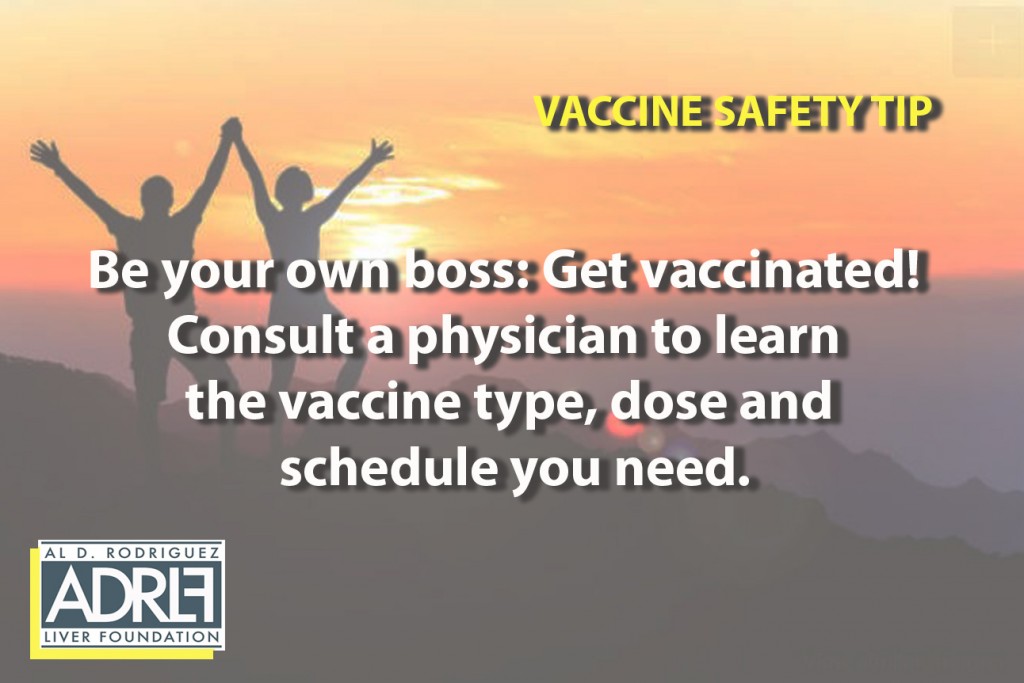
Vaccines work! No treatment is available for hepatitis A & B—so vaccination is your best protection. Explore and discuss vaccine options with your healthcare providers, in planning a smart course of action for yourself and your family. Learn more about the different hepatitis vaccines here.
Fact #2. Got severe allergies or a serious illness? Hep B vaccine may or may not be for you.

The hepatitis B vaccine is not for everyone—particularly those with severe allergies or a serious illness. As with any medication, this vaccine may carry minor some side effects, like soreness and mild fever. However, contrary to the ever-growing, widespread fears around immunization, which are putting the public health at risk, there’s been no link proven between vaccines and autism—as emphasized by the CDC and the World Health Organization.
Fact #3. Travel-time, soon? Whether you’re traveling domestically or internationally—be sure to get all of your vaccines!
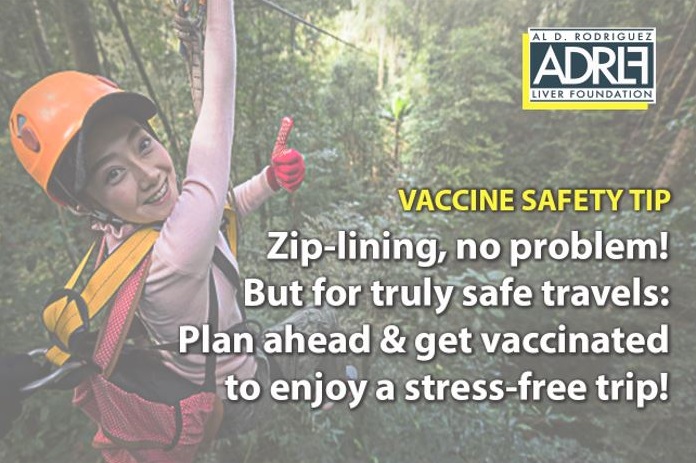
While many of the suggested travel vaccines are meant for those voyaging to tropical and exotic areas, it’s important to be informed about country-specific immunization requirements—and current disease patterns. Check out this blog to learn about hepatitis vaccination before travelling, and get a travel vaccine assessment before an international trip.
Fact #4. No vaccine is available for #HepC—so testing is recommended for Baby Boomers, people w/ tattoos, and blood recipients/donors.
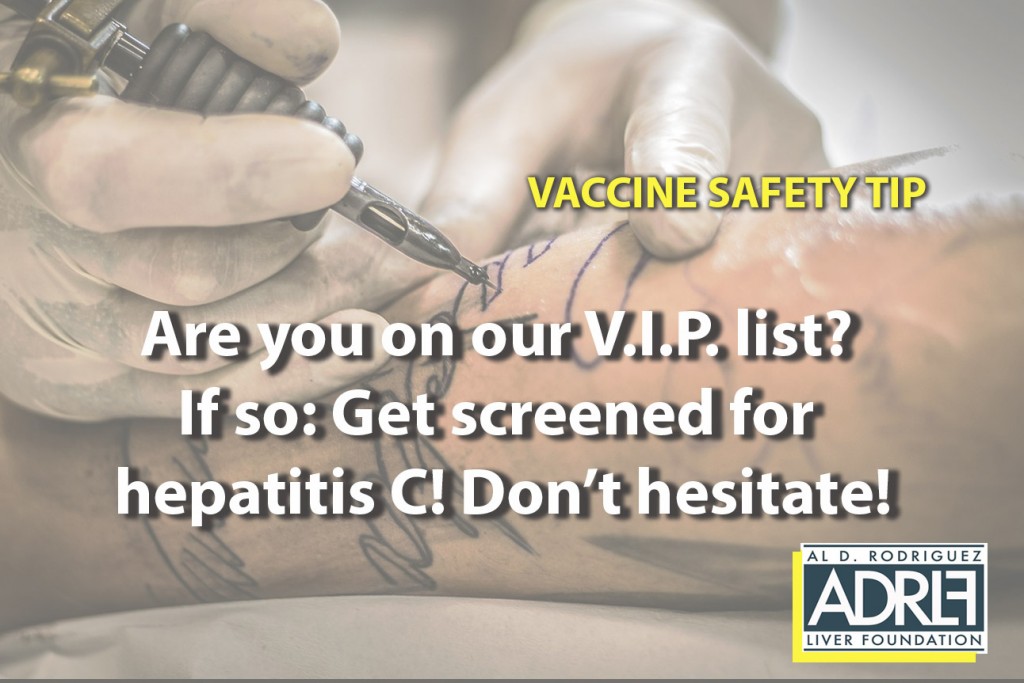
There is no vaccine to prevent HCV, so testing is recommended, particularly for the following:
- People born during 1945–1965
- Injecting drug users
- Recipients of clotting factors made before 1987
- Hemodialysis patients
- Recipients of blood or solid organ transplants before 1992
- Infants born to HCV-infected mothers
- People with undiagnosed abnormal liver test results
- Healthcare professionals
- People with tattoos (even from professional parlors)
- People with HIV infection
Fact #5: Vaccines protect pets against dangerous viral and bacterial disease!
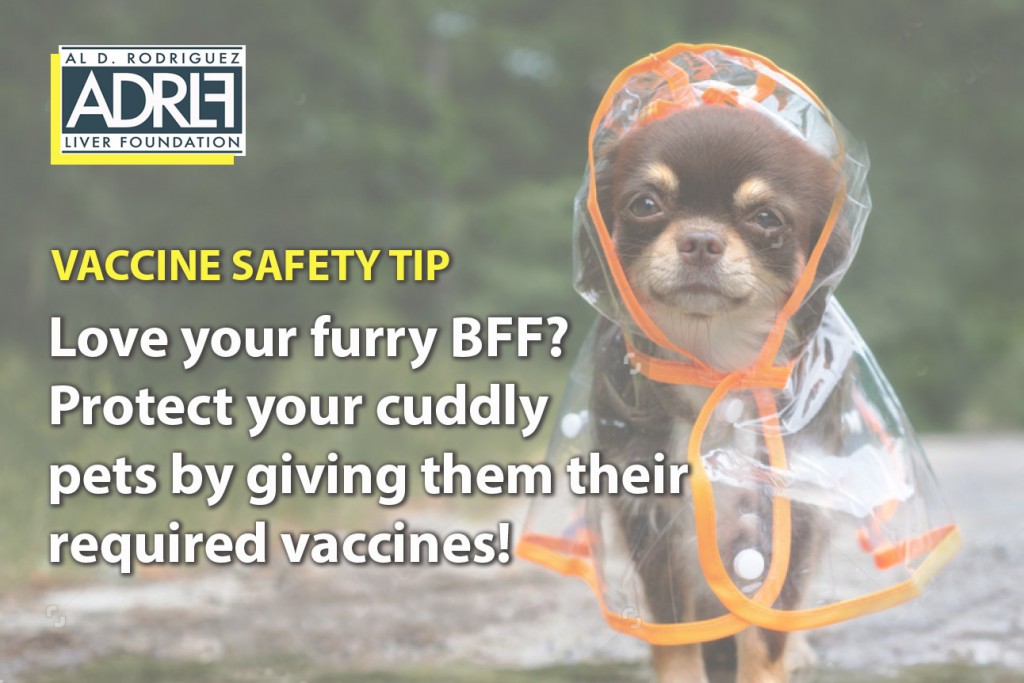
Just like humans, dogs and cats also need vaccines to give them life-long protection from diseases like rabies, feline leukemia virus, and canine parvovirus. Some of which diseases can be passed on to humans—particularly those with undeveloped, or compromised immune systems, including infants, the elderly, and more. Consult your vet to know which vaccines your pets need.
Fact #6. Vaccines strengthen your immune system with long-lasting protection!
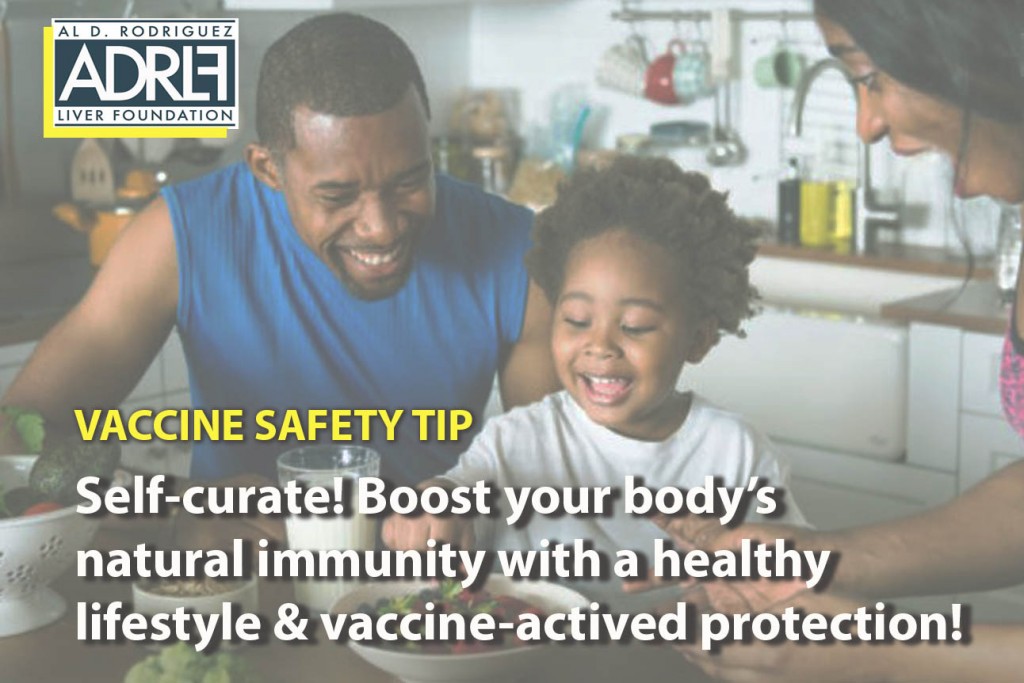
While natural immunity is a valuable form of self-defense, it typically isn’t as strong as vaccine protection. Our immune system kicks off when we get sick; it may not be enough to fight off serious diseases. Vaccines help our immune system do its job better and faster, and provides long-term (even life-long) active immunity against threatening infections.
Fact #7. What? Where? When? Not sure which vaccines you’ve received? Or when you need to be inoculated? Take control of your wellness. Check out this immunization schedule. http://bit.ly/2ZQ26pG

Locate and track your vaccination history to make sure you’re up-to-date with the necessary vaccines. Finding old vaccination information can be difficult and time-consuming. To start, if you have access, ask your parent/caregivers, as well as elementary/high school/college health services for possible immunization records. Check with your doctor or public health clinic as they often maintain vaccination records for a limited number of years. Finally, contact your state’s health department—some states have immunization registries. Moving forward, use simple recording tools (such as the CDC’s IIS or an online tracker) to efficiently keep track of your and your family’s vaccinations.
Fact #8. A little known fact—as we celebrate our 50th anniversary of the Apollo 11 landing on the moon—vaccine research is also being done in outer space!

Space research has also delved into exploring the mystery of vaccine-induced immunity. A microgravity environment has been shown to induce key changes in microbial cells that are directly relevant to infectious disease. These studies in the science community could play a vital role in developing future vaccines. Keep up with exciting new developments in your universe that may directly impact you. Visit NASA’s website learn more.
Fact #9. Do you work in healthcare? Vaccines go a long way to protect yourself & your patients!

Physicians, doctors, and other professionals in the medical setting are at high risk for acquiring various diseases due to their daily work exposure. Protect yourself—as well as your patients and family members—by getting the vaccines that the CDC recommends for healthcare workers. Learn more here.
Fact #10. Did you know that the 1796 “invention” of the vaccine was inspired by a milkmaid who, knowing she contracted cowpox while working, boasted about her smallpox immunity–in front of a curious young apprentice; noting how cowpox prevented her from getting the then-deadly disease.

Did you also know: The word “vaccination” is derived from the Latin word “vaccinus”, meaning of or from a cow. Here’s how it all connects: In his younger days of apprenticeship, Edward Jenner, a whip-smart English doctor (also known today as the “father of immunology.”) overheard some milkmaid boasting how she had gotten cowpox, and that her skin would never have to be blemished by the deadly smallpox disease. Noting she had no symptoms of smallpox after inoculation, Dr. Jenner observed this to be true. In 1796, he tested his theory with a milkmaid, Sarah Nelmes, her cow named Blossom, and a 9-year-old boy, James Phipps. Months later, Jenner exposed Phipps a number of times to the variola virus, but Phipps never developed smallpox. There’s evidence that as early as 800 years prior in China—and similarly prior in Africa and Turkey—certain procedures of inoculation (known as variolation) were developed to combat small pox–prior to its spread in Europe. Also, from 1768 to 1791, a few other European scientists in England, France and Germany tested inoculation, but Dr. Jenner’s world-changing discovery ultimately prevailed. Learn more about early efforts to control diseases here.
Vaccines have saved millions of lives—providing benefits that far outweigh the risks. Although some vaccines contain substances that are harmful to the body in high amounts—such as mercury, formaldehyde, and aluminum—the amount of these chemicals in vaccines is small and considered harmless. For example, the maximum amount of formaldehyde present in any vaccine is .02 mg per dose. Notably, there is 50 to 70 times more formaldehyde present in an average newborn’s body than in a single dose of vaccine, reported the FDA. In fact, people consume formaldehyde when they eat fruit, vegetables, meat, seafood and poultry.
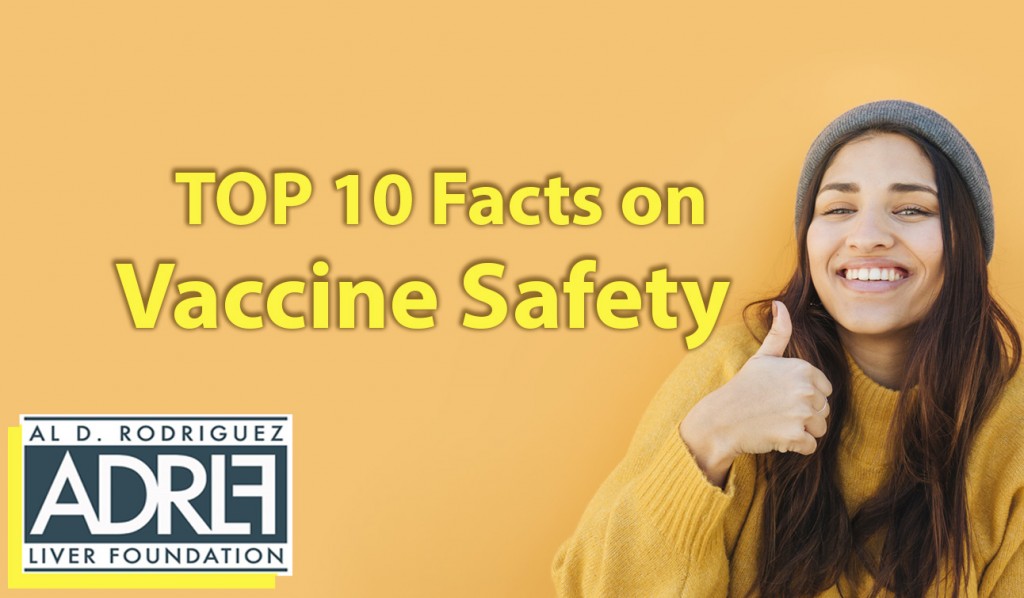
Do your homework. Verify your sources. Be your own advocate. Get comfortable through awareness and knowledge. In fact, from simple dental procedures, to over-the counter medications, to dining outdoors, to getting inked by a local celeb artist, risks are inherent in all that we introduce into our bodies. Yet there’s also a greater risk in failing to introduce essential medicines, supplements, nourishment, inoculation, and procedures that work to sustain our individual collective wellness. And with hepatitis A & B in mind, let’s work to eradicate both, now that we have the knowledge and tools. May our timely outreach be your pressing inspiration! So, when it comes to protecting your liver—and your body—ADRLF lovingly urges you to: SCREEN. VACCINATE. DON’T HESITATE! You’ve GOT this!





























